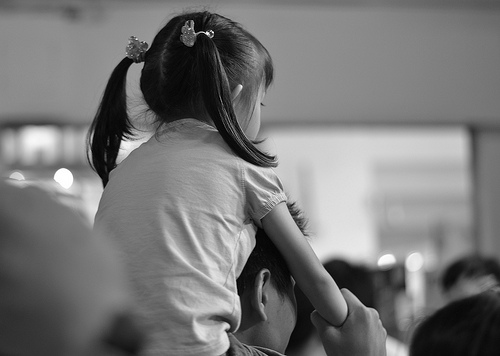- La Feria Community Holds Succesful Business Mixer Event
- Little Nashville to Take Place in Downtown Mercedes
- Lions Basketball Captures District Gold
- La Feria ISD Students Compete in Regional Chess Tournament
- Lions End First Half of 32-4A on a High Note
- La Feria ISD Held Another Successful Parent Conference
- Strong Appearance for Lions at Hidalgo Power Meet
- LFECHS Students Get to Meet Local Actress
- Students Participate in Marine Biology Camp
- Two LFECHS Students Qualify for All-State Band
New Year’s Resolution for Parents: Discipline, Not Punishment
- Updated: January 24, 2014
Expert says Discipline Brings Connection, Punishment Brings Fear
by John Michaelson/TNS
AUSTIN, Texas – It isn’t among the list of the usual New Year’s resolutions, like quitting smoking or losing weight.
But one expert says a goal for 2014 of parenting through discipline instead of punishment can have life-long positive impacts.
Ingrid Bauer is a mother of four and an expert on communication within families.

For many people the words ‘discipline’ and ‘punishment’ are interchangeable, and while both may lead to behavior change, one expert says there’s a major difference in how each connects a parent and child. Photo: John Ragai/TNS
She says there’s a big difference between punishment – like spankings or time-outs, that may just teach children not to get caught next time – and discipline, which can teach values and bring parent and child closer.
“Working with a child in partnership, you gain their trust,” she says. “And the motivation for them to behave in ways that you hope that they will, and that will benefit them, comes from inside them, whereas punishment, it’s all motivated primarily through fear of something external, rather than being connected to why they’re doing something.”
Bauer adds better than meting out punishment when a child misbehaves is to talk with the child, try to understand why he or she acted out and then, work together to change the behavior.
Bauer says using a discipline-based approach also works because, at the same time children are given expectations, they also learn that their needs matter as well.
“Having their parents really validate what’s important to them and knowing that they’re going to be considered, as well as their parents also telling them what’s important to them and what they’d like,” she explains. “And my experience is that over time when you build that relationship of trust naturally, if you let that flow of love happen, they want to contribute. It makes them feel good.”
Bauer leads workshops around the country on what she calls compassionate parenting, and is certified by the Center for Nonviolent Communication.


